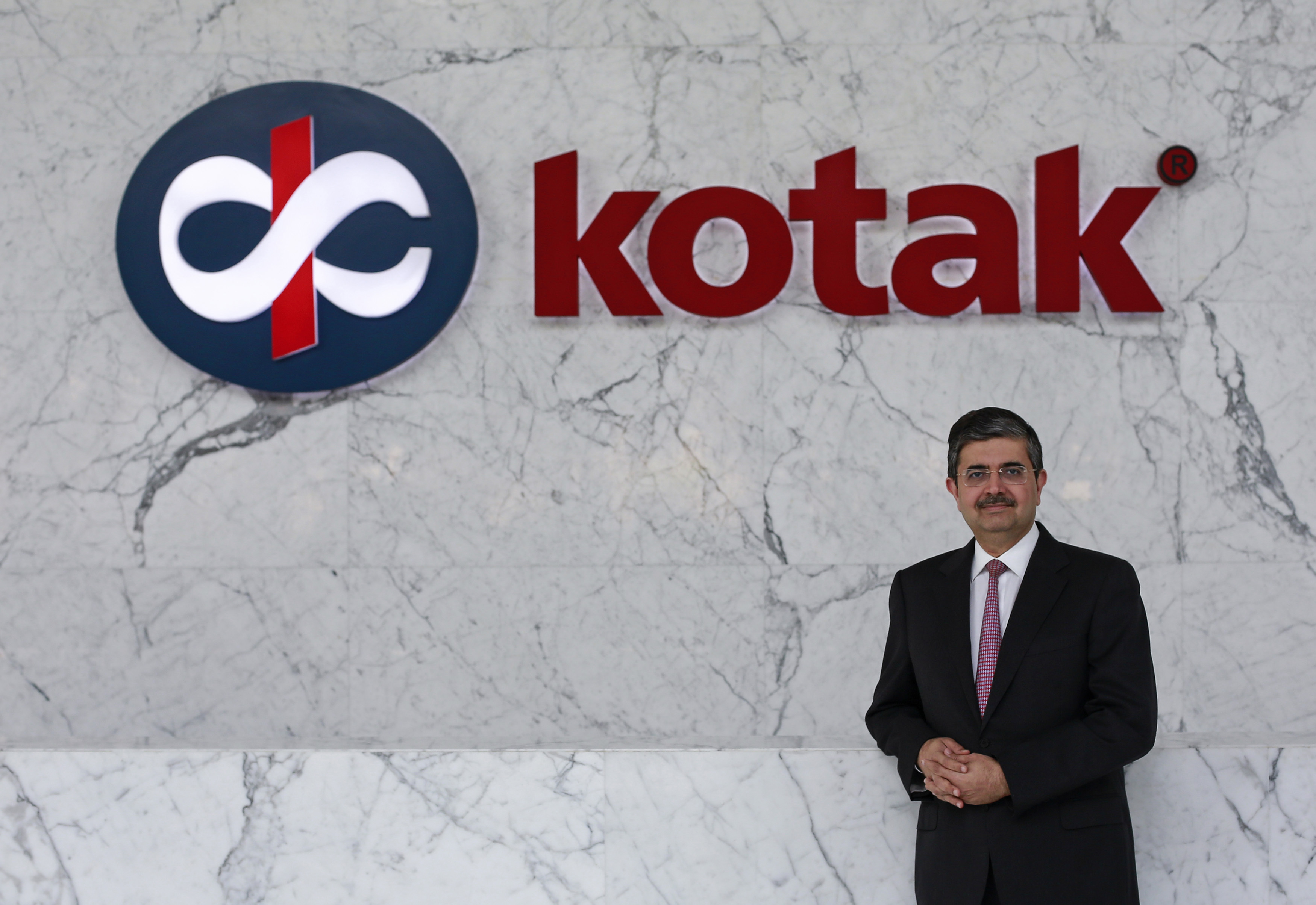
FILE PHOTO-Uday Kotak, Managing Director of Kotak Mahindra Bank poses for a picture at the company’s corporate office in Mumbai January 15, 2015. REUTERS/Danish Siddiqui/File Photo Acquire Licensing Rights
Sept 2 (Reuters) – Billionaire Uday Kotak, who founded and leads Kotak Mahindra Bank (KTKM.NS), has resigned as the managing director and chief executive four months before his term was set to end, the bank said in a stock exchange filing on Saturday.
Kotak’s early exit from the country’s fourth-largest bank is due to personal reasons, according to the bank, but analysts said it will quell concerns that Kotak’s presence will loom large over his successor.
Dipak Gupta, currently the joint managing director, will carry out the chief executive duties until Dec. 31, the bank added.
“I have mulled over this decision for some time and believe it is the right thing for the institution,” Kotak wrote in a letter sent to India’s exchanges.
“I thought it appropriate to hand over the baton and stagger the transition,” Kotak wrote.
India’s banking regulation limits the tenure of lenders’ chief executives to 12 years if they are also large shareholders.
Kotak’s term was due to end in December.
The bank has already made an application for the new managing director to India’s central bank, the bank said in its exchange notification. In India top posts at lenders are approved by the Reserve Bank of India, which regulates banks.
“If the new chief executive is from outside the bank, the transition would require a lot of hand-holding,” said Amit Tandon, chief executive of proxy advisory firm Institutional Investor Advisory Services.
“However if the bank has chosen an internal candidate then the transition could be much more smoother,” Tandon said.
On social media platform X, formerly known as Twitter, Kotak said “founders go away, but the institution flourishes into perpetuity”.
He said he would remain on the bank’s board as non-executive director and significant shareholder.
Anand Dama, a banking analyst with brokerage firm Emkay Global Financial Services, said that while the CEO’s early departure was a surprise, the application for his replacement’s approval suggested the bank already had an internal candidate.
RISK AVERSE BANKER
Uday Kotak was given a banking licence in 2003, allowing him to join ICICI Bank, HDFC Bank and others as early private entrants into India’s banking sector, which until 1993 allowed only government-owned banks.
Kotak and his bank earned a reputation for a focus on risk management, which helped the lender escape a bruising bad loan cycle that hit Indian banks from 2013.
Kotak Mahindra Bank’s consistent risk management is behind the bank’s high valuation, said Dhananjay Sinha, head of research at brokerage firm Systematix.
“By creating space between him stepping down and a new chief executive coming in, Kotak may be trying to signal that the transition will be independent,” he added.
Gross bad loans at the bank are at 1.78% of total assets and the bank trades at a price-to-book ratio of 4.2 times, according to stock exchange data. This compares with India’s largest private lender HDFC Bank’s ratio of 4.2 times and higher than ICICI Bank’s 3.38 times.
Kotak has also become the go-to banker for the Indian government at times of stress and helped lead the bankruptcy process for Indian infrastructure conglomerate IL&FS in 2019, which led to a freeze in the country’s credit markets.
But he has had his share of run-ins with the regulator.
In 2018, he made headlines by challenging a directive from the RBI in court to reduce shareholding in his bank to 26%, buying himself more time to sell stock to outside investors.
Alongside the bank, Kotak has also built an $18 billion business in alternative assets and an asset management company.
“I look forward to my new role as non-executive director, a role entrusted to me by the board and an overwhelming majority of the bank’s shareholder,” Kotak wrote in his letter.
Reporting by Jayshree P Upadhyay; additional reporting by Chris Thomas; editing by Miral Fahmy, Tomasz Janowski and Louise Heavens
Our Standards: The Thomson Reuters Trust Principles.



)
)
)




